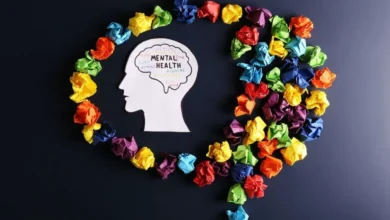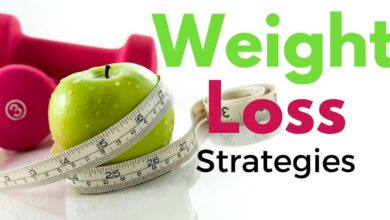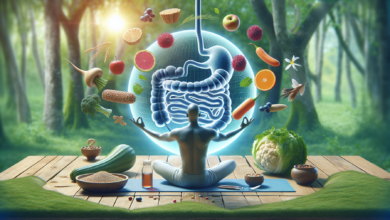Nutrition and Diet Plans: A Guide to Healthy Eating

Proper nutrition and well-balanced diet plans play a crucial role in maintaining overall health and well-being. Eating the right foods in the correct proportions helps prevent diseases, boosts energy levels, and supports physical and mental health. Understanding the importance of nutrition and following a structured diet plan can lead to a healthier lifestyle.
Nutrition and Diet Plans: Why They Matter
A well-balanced diet provides essential nutrients that the body needs to function properly. Poor nutrition can lead to obesity, diabetes, heart disease, and other health issues. By understanding the fundamentals of good nutrition, individuals can make informed choices that support their well-being.
Nutrition and Diet Plans: Essential Nutrients for a Healthy Body
A balanced diet should include a variety of nutrients to maintain optimal health. The key nutrients include:
- Proteins – Essential for muscle growth, tissue repair, and overall body function. Sources include lean meats, fish, eggs, beans, and nuts.
- Carbohydrates – The primary energy source for the body. Whole grains, fruits, and vegetables provide healthy carbs.
- Fats – Support brain function and hormone production. Healthy fats include avocados, nuts, seeds, and olive oil.
- Vitamins – Essential for immunity and various bodily functions. A diet rich in fruits and vegetables ensures sufficient vitamin intake.
- Minerals – Important for bone health, muscle function, and nerve signaling. Calcium, iron, and potassium are key minerals.
- Fiber – Aids digestion and promotes gut health. High-fiber foods include whole grains, legumes, and fresh produce.
- Water – Keeps the body hydrated and supports metabolic processes.
Nutrition and Diet Plans: Popular Diet Plans for a Healthy Lifestyle
There are various diet plans designed to meet different health and lifestyle goals. Some popular diet plans include:
Mediterranean Diet
The Mediterranean diet emphasizes whole foods, lean proteins, and healthy fats. It is rich in fruits, vegetables, olive oil, fish, and nuts while limiting processed foods and red meat.
Keto Diet
The ketogenic diet focuses on high-fat, moderate-protein, and low-carb intake. This diet shifts the body into a state of ketosis, where it burns fat for energy instead of carbohydrates.
Intermittent Fasting
Intermittent fasting involves cycles of eating and fasting periods. Common approaches include the 16:8 method, where individuals fast for 16 hours and eat within an 8-hour window.
Plant-Based Diet
A plant-based diet focuses on consuming whole, plant-based foods such as fruits, vegetables, nuts, seeds, and legumes while minimizing or eliminating animal products.
Paleo Diet
The Paleo diet emphasizes foods that early humans consumed, including lean meats, fish, nuts, and fresh produce while avoiding processed foods, dairy, and grains.
Also Read: Mental Health Awareness: Understanding and Prioritizing Mental Well-Being

Nutrition and Diet Plans: Tips for Maintaining a Healthy Diet
Adopting healthy eating habits can improve overall well-being. Here are some tips for maintaining a balanced diet:
- Plan Your Meals – Preparing meals in advance helps ensure balanced nutrition and prevents unhealthy eating choices.
- Eat More Whole Foods – Focus on natural, unprocessed foods to maximize nutrient intake.
- Stay Hydrated – Drink plenty of water throughout the day to support digestion and overall health.
- Control Portions – Practicing portion control prevents overeating and supports weight management.
- Limit Sugar and Processed Foods – Reduce consumption of sugary drinks, fast food, and highly processed meals.
- Include a Variety of Foods – Eating a diverse range of foods ensures the intake of all essential nutrients.
- Listen to Your Body – Pay attention to hunger and fullness cues to avoid overeating or under-eating.
Frequently Asked Questions (FAQs)
What is the best diet for weight loss?
The best diet for weight loss depends on individual preferences and lifestyle. A balanced diet with controlled calorie intake, regular exercise, and healthy eating habits can effectively promote weight loss.
How important is hydration in nutrition?
Hydration is essential for digestion, nutrient absorption, and overall bodily functions. Drinking enough water daily supports optimal health.
Are all fats unhealthy?
No, healthy fats such as those found in avocados, nuts, and olive oil are essential for brain function and hormone production. Avoid trans fats and excessive saturated fats.
Can I get enough protein on a plant-based diet?
Yes, plant-based sources of protein such as lentils, chickpeas, tofu, and quinoa provide adequate protein intake for individuals following a plant-based diet.
What are some easy ways to eat healthier?
Simple steps such as eating more vegetables, choosing whole grains, cooking at home, and reducing processed food consumption can make a significant difference in overall nutrition.
Conclusion
Nutrition and diet plans are essential for maintaining a healthy lifestyle. By choosing nutrient-rich foods, staying hydrated, and following structured diet plans, individuals can improve their physical and mental well-being. Prioritizing healthy eating habits leads to long-term benefits, including disease prevention, enhanced energy levels, and overall improved quality of life.




One Comment